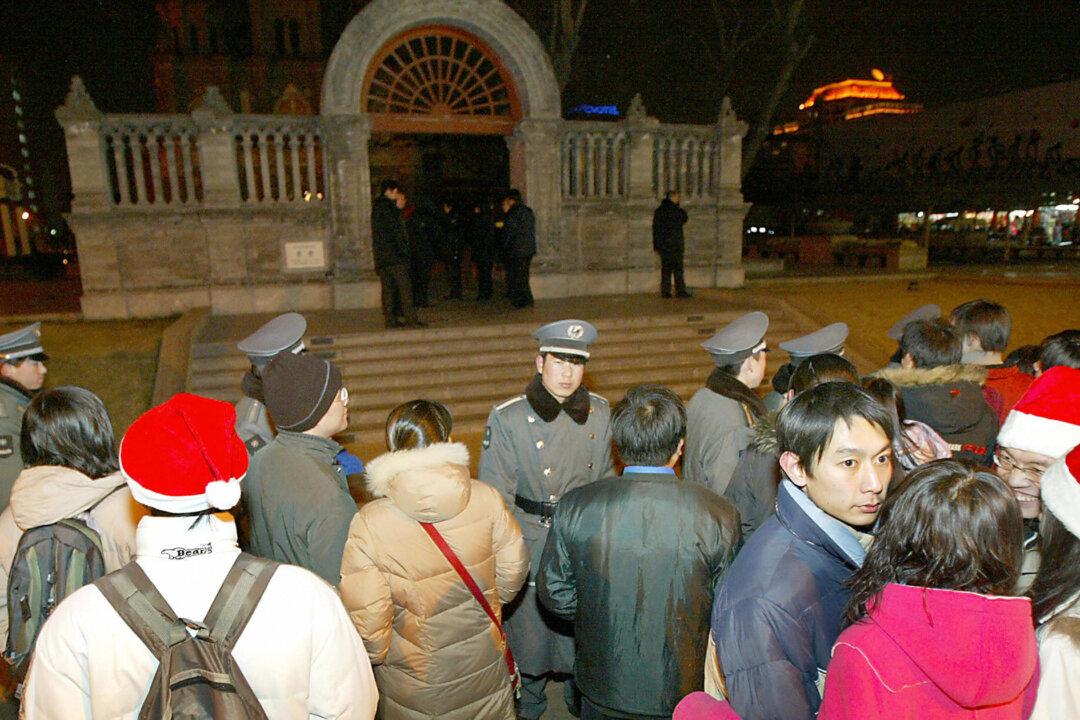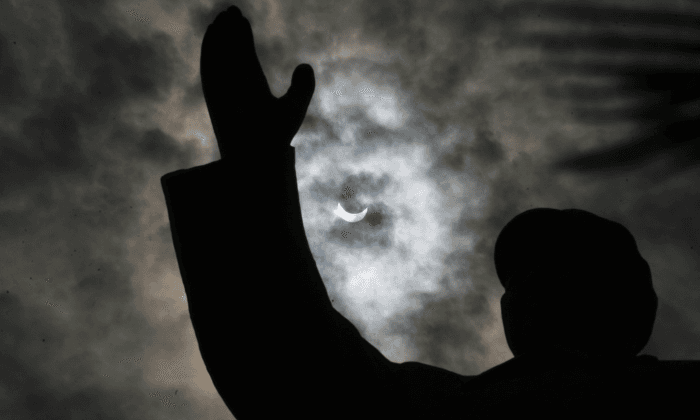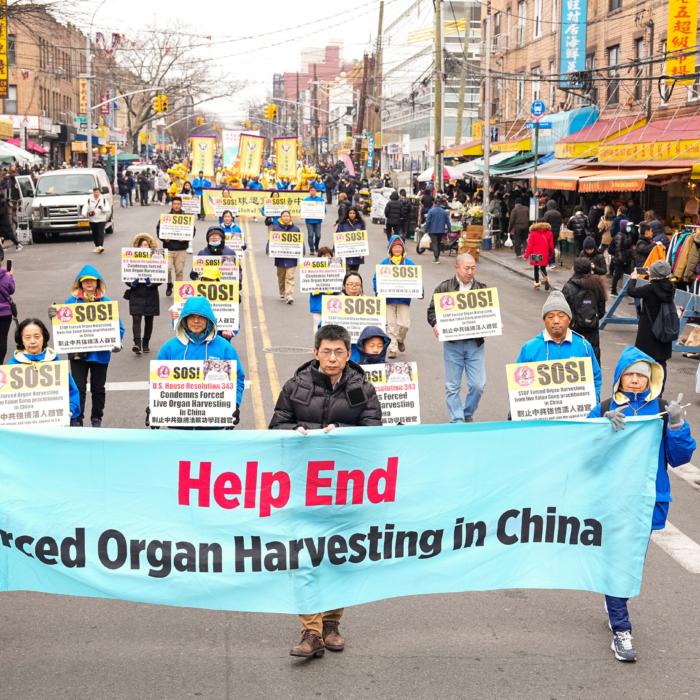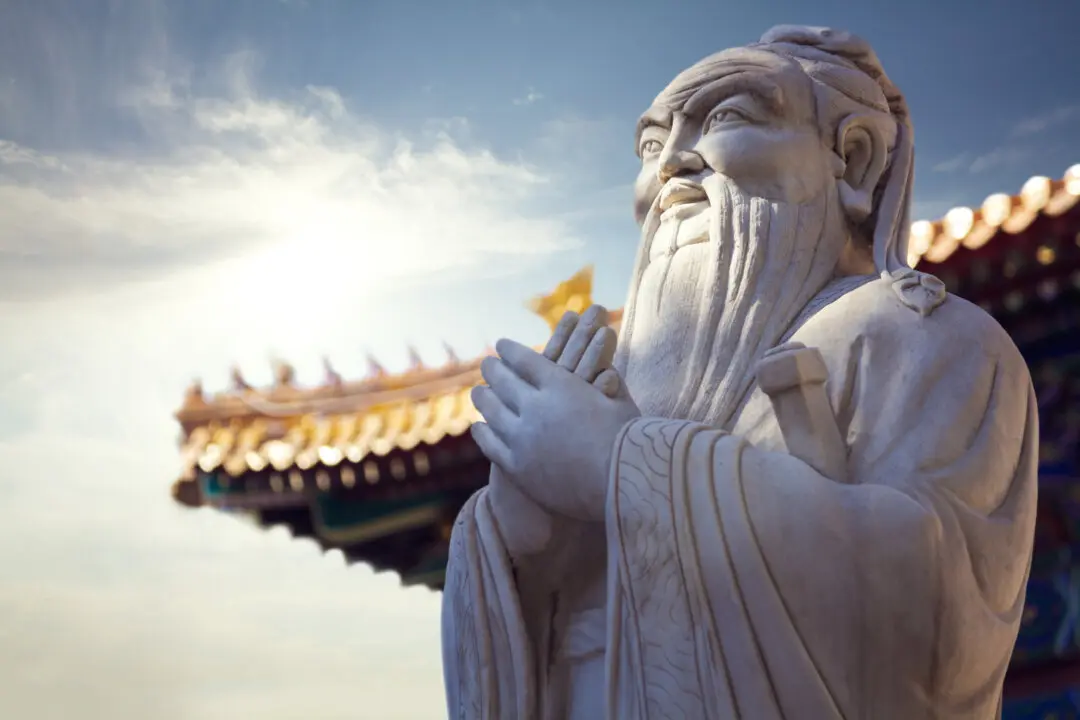Chinese police raided a service venue of an underground church on Sept. 1, detaining four church leaders in a continuation of its clampdown on religious groups.
More than 30 police officers, both in uniform and plain clothes, surrounded the premises rented by the Early Rain Covenant Church in Chengdu, Sichuan Province.
Nearly 60 members of the house church had gathered inside for their regular Sunday worship. The police locked the venue, confining the worshippers already inside and preventing those outside from entering the building.
Christians in China, who have faced persecution under the Chinese Communist Party (CCP), have been meeting in underground churches for years because the regime officially prohibits all churches outside of CCP control.
Peaceful Service Disrupted
One congregant, Mr. Liu (a pseudonym), described the scene in an interview with The Epoch Times after the incident. He said that the police and state security officers arrived at the underground church at about 8:50 a.m. before the service had started.“The devil never sleeps,” Liu said, referring to the constant harassment the church faces. He recalled that Wu was already negotiating with the venue staff when the police arrived, anticipating the day’s service would again face disruption.
According to Liu, their service went on despite the intervention by the police.
Worshippers both inside and outside of the venue continued with their service, led by their church leaders, singing hymns, praying, and participating in an online service.
At about 9:05 a.m., he said, police detained Li and Wu. Despite the escalating tension, the service continued under the leadership of Yan and Zeng, who carried on with the scheduled Bible readings, prayers, and hymns.
By 9:55 a.m., the police returned and took Yan and Zeng into custody, Liu said. Following their arrests, power to the venue was cut off, halting the ongoing service. Property management staff at the venue attempted to further disrupt the service by loudly playing CCP songs, aiming to drown out the worshippers, Liu said. They also tried to expel those remaining inside.
The worshippers remained undeterred, Liu said. They continued to sing hymns and worship peacefully, with some shifting to the online service to complete their Sunday observance. Those who had been locked out earlier were eventually forced to leave the building but persisted in seeking a new location to continue their worship, he said.
An overseas Christian, who prefers to be known by his surname Luo, confirmed to The Epoch Times that the authorities involved in the raid included more than 30 officers from the Public Security Bureau and Hongpailou police station in the Wuhou District of Chengdu City.
The interviewees told The Epoch Times that the police have instructed the families of two of the detained individuals to prepare medications for up to two weeks, suggesting extended detention. There is no information regarding the whereabouts or condition of Li and the other detained church workers.
The Epoch Times’ attempts to reach the Wuhou District Public Security Bureau and the Hongpailou police station for comment were unsuccessful, as calls went unanswered.
Worsening Religious Environment in China
The regime has also become increasingly hostile to foreign missionaries as the CCP views their activities as “Western influence.” China’s new anti-espionage law defines “illegal religious activities” as espionage, and foreign nationals can face lengthy jail terms under the new law.The report records the CCP’s persecution of Christians in China, including “forcibly demolishing churches and meeting places,” “randomly using or fabricating criminal charges to detain, arrest, and sentence church leaders and lay Christians,” “restricting and interrupting lawyers’ visits,” and “imposing administrative fines” on Christian churches. Detailed cases of persecution are included in the report.
“I hope and pray the international community responds to these stories with a renewed, unified vision for multilateral coordination in defense of religious freedom for all in China.”







